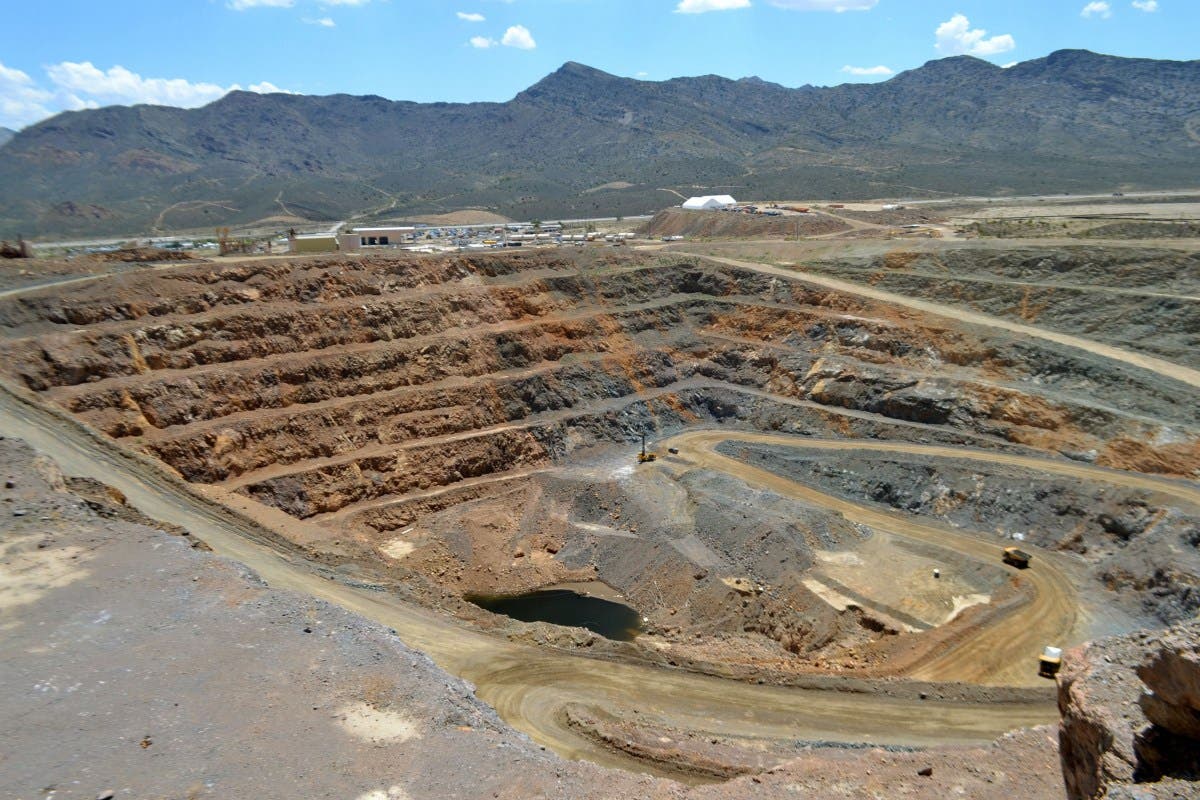China has placed sweeping new restrictions on rare earth materials and equipment in a move that could deny U.S. companies and defense contractors access to critical building blocks in their supply chains.
The export controls, laid out on Thursday in two notices issued by China’s Commerce Ministry, were a subtle shot across the bow to President Donald Trump ahead of his summit with Chinese counterpart Xi Jinping, with a bilateral trade agreement on the line.
Why It Matters
China commands a 60 percent share in global rare earth production and an estimated 90 percent in mineral processing. Its dominance of rare earth supplies—used in everything from electric cars and smartphones to missiles and jet fighters—remains a major bargaining chip in its negotiations with the United States.
In April, in response to Trump’s tariffs on Chinese goods, Beijing curbed mineral exports and alarmed American and European industries, piling pressure on Washington and Brussels to strike emergency deals with the Chinese government. This week’s announcement is another signal that Beijing is ready to use its leverage for strategic gains.
The U.S. State Department did not immediately respond to a written request for comment outside office hours.
What To Know
The new rules prohibit the unauthorized export of technologies used in rare earth mining, smelting and separation, magnet making, and recycling, as well as the assembly, debugging, maintenance, repair, and upgrade of related production lines, according to the Chinese Commerce Ministry.
The long list of restricted items also now includes rare earth material and equipment that contain Chinese components—even those already exported overseas—mirroring an existing U.S. ban on chipmaking hardware and know-how designed to slow China’s advances in semiconductor technology.
For the first time, the ministry makes clear that foreign entities classified as dual-use or military end users will not be granted export licenses, in a direct threat to the supply chains of American companies that accept contracts from the U.S. Defense Department. Chinese firms also are forbidden from cooperating in the specified fields.
Export applications will be denied to end users involved in the “design, development, production and use of weapons of mass destruction and their means of delivery,” one of the notices said.
And in a potentially far-reaching rule for non-military users in the West, China said it would review on a case-by-case basis all export applications for items used in the research, development and production of 14-nanometer semiconductors or more advanced, and of memory chips with 256 layers or more, including in “research and development of artificial intelligence with potential military applications.”
“For some time now, some foreign organizations and individuals have been transferring or supplying controlled rare earth items originating in China, either directly or after processing, to organizations and individuals concerned for direct or indirect use in sensitive areas such as the military, causing significant harm or posing a potential threat to China’s national security and interests,” a spokesperson for the Chinese Commerce Ministry said in a separate statement.
The spokesperson said the new measures would help the Chinese government “better safeguard its national security and interests and better fulfill its international obligations in the area of nonproliferation.”
The domestic export restrictions take effect immediately, while the extraterritorial rules are set to begin on December 1, after the meeting of the U.S. and Chinese leadership.
What People Are Saying
A spokesperson for China’s Commerce Ministry said: “Rare earth-related items have dual-use characteristics. It is common international practice to impose export controls on them.”
Henry Gao, professor of law at Singapore Management University, said on X: “This represents a sweeping extraterritorial expansion of China’s export control regime—one that could severely disrupt global supply chains dependent on Chinese rare earth inputs and know-how.”
Sari Arho Havrén, associate fellow at the Royal United Services Institute, said on X: “China is strengthening its leverage ahead of negotiations with the U.S. by introducing new export controls on rare earth materials and related technologies.”

Cole McFaul, senior research analyst at Georgetown University’s Center for Security and Emerging Technology, said on X: “Massive—is this what decoupling feels like?… A dramatic expansion of China’s export control regime. And an escalation that could easily backfire.”
Dmitri Alperovitch, author of World on the Brink: How America Can Beat China in the Race for the Twenty-First Century, said on X: “If China itself is saying that there are national security grounds to prevent their adversaries…from making chips below 14nm due to potential for use in military applications, all export of chips below 14nm should be banned to China!”
What Happens Next
The U.S. knows it is in a vulnerable position by relying on its top strategic rival for the critical resources in its industrial supply chains. Trump in particular has made a push to secure more rare earth minerals at home and abroad, including through deals struck with Ukraine and the Democratic Republic of the Congo. Work to erode China’s foothold in rare earths will take decades, however.
Trump said on Tuesday that he and Xi would meet in South Korea on the margins of the upcoming Asia-Pacific Economic Cooperation (APEC) leaders’ gathering. While Trump may be hoping to announce a trade deal, Xi will be seeking concessions on core interests such as Taiwan.


